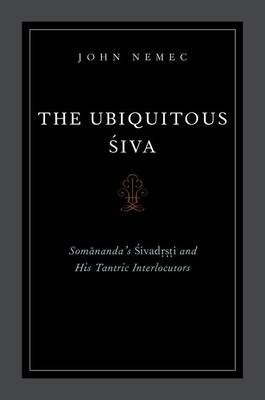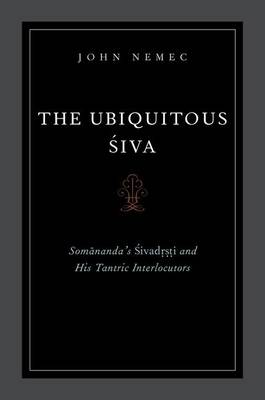
En raison d'une grêve chez bpost, votre commande pourrait être retardée. Vous avez besoin d’un livre rapidement ? Nos magasins vous accueillent à bras ouverts !
- Retrait gratuit dans votre magasin Club
- 7.000.000 titres dans notre catalogue
- Payer en toute sécurité
- Toujours un magasin près de chez vous
En raison de la grêve chez bpost, votre commande pourrait être retardée. Vous avez besoin d’un livre rapidement ? Nos magasins vous accueillent à bras ouverts !
- Retrait gratuit dans votre magasin Club
- 7.000.0000 titres dans notre catalogue
- Payer en toute sécurité
- Toujours un magasin près de chez vous
97,95 €
+ 195 points
Description
John Nemec examines the beginnings of the non-dual tantric philosophy of the famed Pratyabhijña or "Recognition [of God]" School of tenth-century Kashmir, the tradition most closely associated with Kashmiri Shaivism. In doing so it offers, for the very first time, a critical edition and annotated translation of a large portion of the first Pratyabhijña text ever composed, the Sivadrsti of Somananda. In an extended introduction, Nemec argues that the author presents a unique form of non-dualism, a strict pantheism that declares all beings and entities found in the universe to be fully identical with the active and willful god Siva. This view stands in contrast to the philosophically more flexible panentheism of both his disciple and commentator, Utpaladeva, and the very few other Saiva tantric works that were extant in the author's day. Nemec also argues that the text was written for the author's fellow tantric initiates, not for a wider audience. This can be adduced from the
structure of the work, the opponents the author addresses, and various other editorial strategies. Even the author's famous and vociferous arguments against the non-tantric Hindu grammarians may be shown to have been ultimately directed at an opposing Hindu tantric school that subscribed to many of the grammarians' philosophical views. Included in the volume is a critical edition and annotated translation of the first three (of seven) chapters of the text, along with the corresponding chapters of the commentary. These are the chapters in which Somananda formulates his arguments against opposing tantric authors and schools of thought. None of the materials made available in the present volume has ever been translated into English, apart from a brief rendering of the first chapter that was published without the commentary in 1957. None of the commentary has previously been translated into any language at all.
structure of the work, the opponents the author addresses, and various other editorial strategies. Even the author's famous and vociferous arguments against the non-tantric Hindu grammarians may be shown to have been ultimately directed at an opposing Hindu tantric school that subscribed to many of the grammarians' philosophical views. Included in the volume is a critical edition and annotated translation of the first three (of seven) chapters of the text, along with the corresponding chapters of the commentary. These are the chapters in which Somananda formulates his arguments against opposing tantric authors and schools of thought. None of the materials made available in the present volume has ever been translated into English, apart from a brief rendering of the first chapter that was published without the commentary in 1957. None of the commentary has previously been translated into any language at all.
Spécifications
Parties prenantes
- Auteur(s) :
- Editeur:
Contenu
- Nombre de pages :
- 456
- Langue:
- Anglais, Sanskrit
- Collection :
Caractéristiques
- EAN:
- 9780199795451
- Date de parution :
- 22-07-11
- Format:
- Livre relié
- Format numérique:
- Genaaid
- Dimensions :
- 236 mm x 160 mm
- Poids :
- 757 g

Les avis
Nous publions uniquement les avis qui respectent les conditions requises. Consultez nos conditions pour les avis.






